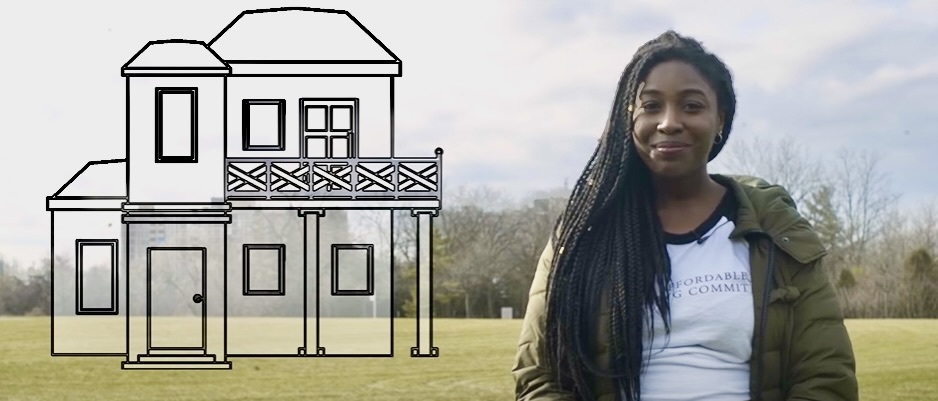When Bria Hamilton was a 19-year-old student at York University, a fire started in the basement kitchen of the three-storey townhouse she shared with nine other people.
“The fire alarms didn’t go off, which was really scary, and the fire extinguisher also didn’t work, so after tons of panic, one of my roommates doused the fire with water,” said the environmental studies and urban planning graduate, now 26. “Luckily, it worked out.”
Four people shared the apartment and kitchen in the basement in the Village at York University. Another six shared the upstairs space, which had a second kitchen and six bedrooms carved out of the available space.
Hamilton said her roommates called the fire department to complain about their unresponsive landlord. The department said there was little they could do except tell them “move and don’t live there,” she said.
At the time, the Village had about 800 townhouses, mostly rented out as rooming houses or multi-tenant houses, which are illegal in North York.
“There’s a bunch of slumlords who are just pumping in as many students as they can there,” Hamilton said. When eight to 10 students in one dwelling live in tiny quarters and share a kitchen, there’s a great possibility of “fire, pests and other safety hazards.”
York University originally sold the property next to campus to developers for single-family housing units. But the townhomes were bought by different landlords, who converted them into multi-tenant student housing. “It’s probably the most affordable housing around York. Tons of students live there but we don’t have rights in that type of housing because it's illegal,” Hamilton said.
York University, although not affiliated with the Village, wrote in an information sheet to “know your rights and ensure your living quarters are safe and secure and meet fire standards” in its tips for York students living there.
Hamilton’s experience in the Village inspired her to work towards better housing for students. In 2016, she helped found the York Affordable Housing Committee (AFHC), which is pushing to create affordable co-operative housing at or near York University.
The AFHC wants to hold a referendum on campus next semester for a student housing levy.
The levy would be a nominal fee, which students would pay on top of their tuition, said Hamilton, who now works as the community and planning director for Housing Our University Students Equitably (HOUSE).
Student unions and campus newspapers and radio stations often have levies on top of student tuition fees. Money collected through a housing levy would be used for down payments on co-op housing units for students, Hamilton said.
But step one is getting the referendum, which requires signatures from 5,000 students by the end of October.
HOUSE then hopes to create other housing committees and launch similar referendum campaigns at other post-secondary institutions across the country.
For some people who may be wary about being charged an additional fee, Hamilton said students who live on campus are aware of how housing costs add up and can impact them. “Their overall well-being can be improved if they had housing that was suitable for them, safe and affordable, giving them the ability to focus on their studies,” she said.
Hamilton noted all renters in the area would benefit from the creation of co-op student housing. When students don’t have enough housing, student renters drive up costs and lessen availability for the entire population.
“Off-campus students who decide to move out of their parents’ home later in life will still face challenges in the housing market because student housing and affordability will spill into the general housing market,” she said.
Hamilton is still focused on urban planning, and she understands progress will take time. “The development processes in general are a long haul, but with students backing this sort of initiative, hopefully, we can reach permission sooner,” she said.
Nairah Ahmed / Local Journalism Initiative / Canada’s National Observer






Comments